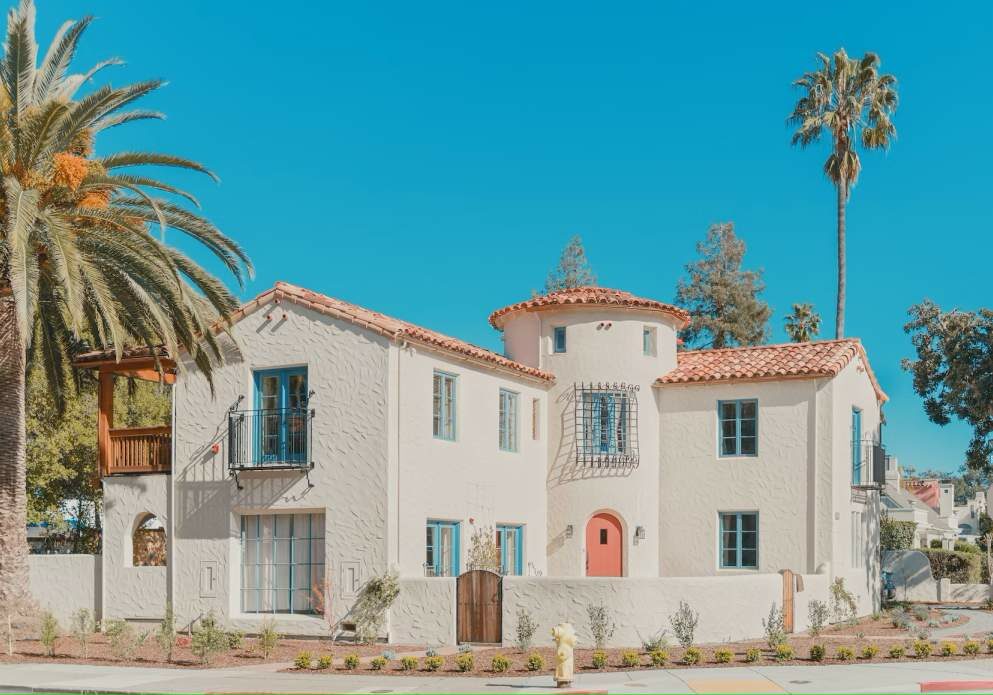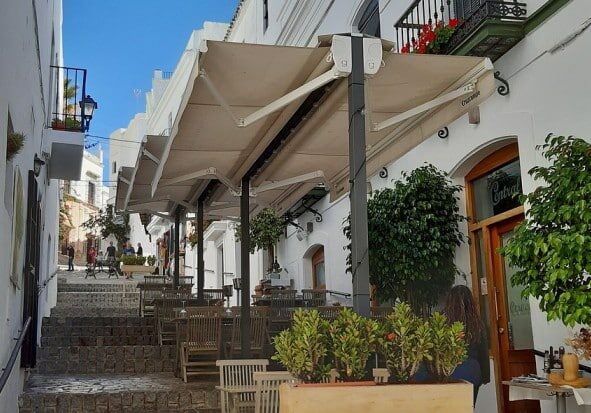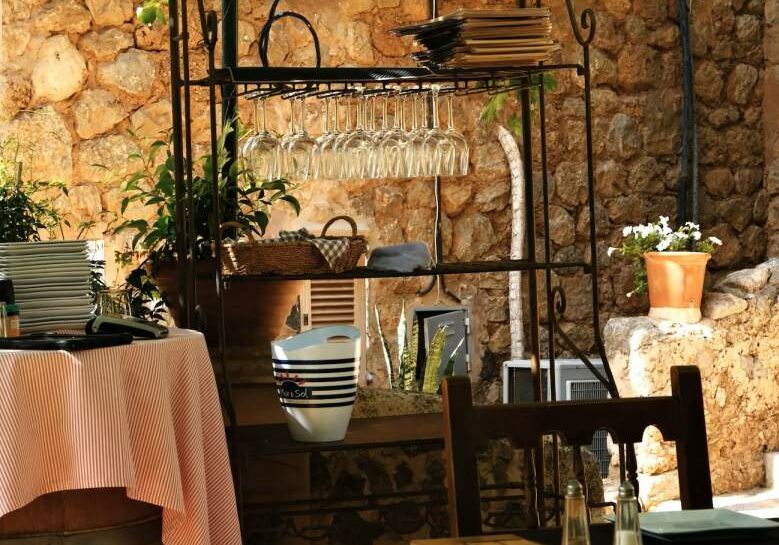The Non-Lucrative Visa Spain (NLV), also referred to as the Spain Non-Working Residence Visa, is a residency permit designed for non-EU nationals who wish to live in Spain without working. It allows individuals to enjoy the country’s lifestyle while maintaining a stable income from abroad. Some benefits include access to Spain’s healthcare system and the ability to travel freely within the Schengen Area.
This guide will highlight everything about the Spain Non-Lucrative Visa, from the eligibility criteria and application process to financial requirements and more.
This is what will be covered:
- What is the Spain Non-lucrative Visa?
- 5 Benefits of the Non Lucrative Residence Visa Spain
- Spain Non Lucrative Visa Requirements
- Spanish Non-lucrative Visa Eligibility Criteria
- Required Documents for Spain Non Lucrative Visa
- Spain Non Lucrative Visa Financial Requirements
- How to Apply for a Non Lucrative Visa in Spain
- Spain Non-Lucrative Visa Interview and Biometric Data
- What is an NIE number and how do you obtain it?
- Spanish Non-lucrative Visa Application Fees
- Spain Non-Lucrative Visa Validity Period
- Renewing Spain Non-Lucrative Visa
- Tax Considerations for Spain Non Lucrative Visa Holders
- Can the Non-lucrative Visa lead to Spanish citizenship?
- Living in Spain: Cost of Living
What is the Spain Non-lucrative Visa?

The visa allows residents to enjoy life in Spain without the need for a work permit. To qualify, applicants must prove they have stable financial support, like income from pensions or rental properties, to cover living expenses.
After five years of residence, you can apply for permanent residency.
5 Benefits of the Non Lucrative Residence Visa Spain
The Spain Non-Lucrative Visa is a great alternative to the Spain Golden Visa, which ended on 3 April 2025. The Non-Working Residence Visa still gives you access to the Schengen Zone and allows you to apply for permanent residency after meeting the criteria.
1. Free entry and circulation in the Schengen Zone: After the applicant receives their non-lucrative residency permit, they will have the right to visa-free travel in the Schengen Area, comprised of 27 European countries. Visa-free travel means you don’t need to fill out any paperwork beforehand.
2. Family reunification: With the Spain Non-Working Residence Visa, you can apply for family reunification if they are financially dependent on you. This includes your spouse or partner, minor children, children over 18 who have a health condition, and your parents or parents-in-law, if they rely on you for financial support.
3. The right to live in Spain: The Non-lucrative Visa grants non-EU legal residence in Spain. Like other residents, Visa holders can access Spain’s public services, including healthcare and education. They’ll also benefit from Spain’s quite affordable cost of living, as well as the country’s pleasant weather, rich cultural heritage, and relaxed pace of life.
4. Pathway to permanent residence and Spanish citizenship: The Spain Non-Lucrative Visa offers a clear path to permanent residence and citizenship. You can renew the permit for four years, apply for permanent residency after five years, and citizenship after ten years. Citizenship gains you a Spanish passport, which ranks 20th in the Global Citizen Solutions Global Passport Index.
5. Access to Spanish education: If you bring your family along, your children or grandchildren can attend Spanish primary and secondary schools. Spain has one of the best education systems, and your child will surely benefit from that.
Non Lucrative Visa Spain Requirements

- Financial Means: Applicants must show they have enough income or savings to support themselves and their family members during their stay.
- Health Insurance: They must have valid coverage from an insurance company authorized in Spain.
- Criminal Record Check: A background check may be needed to prove a clean criminal record.
- Medical Certificate: A health certificate may also be required.
*Applicants will need to present an original and a copy of the certificate accrediting the public or private health insurance contracted with an insurance entity authorized to operate in Spain. The insurance policy must cover all the risks insured by Spain’s public health system.
Spanish Non-lucrative Visa Eligibility Criteria
You’re eligible to submit a Spanish Non-Lucrative Visa application if:
- You are a third-country national (non-EU/EEA and non-Swiss).
- You want to live in Spain long-term.
- You have the necessary financial resources to support yourself and any dependent relatives who live in Spain without working.
- You have a clean criminal record check certificate.
- You have adequate health insurance. The insurance should cover at least €30,000 per person per year, have no co-payments or deductibles, be valid for a year, and be provided by a Spanish or international insurer with offices in Spain.
- You’re free of any illnesses listed under the World Health Organization (WHO) International Health Regulations 2005.
Family members and Spain Non-Lucrative Visa
Immediate family members, including a spouse or common-law partner, dependent children, and dependent relatives, are eligible to receive a residency visa in Spain under a main applicant’s non-lucrative residence visa application. However, adult children can only apply if they have a health condition that makes them dependent. This is on the condition that the applicant can present proof of additional income to support each family member.
Required Documents for Spain Non Lucrative Visa

- Application form
- Passport (or residence permit if not a citizen)
- Two passport-style photos
- No criminal record certificate
- Proof of residence in your consular district
- Proof of accommodation in Spain (lease or property ownership)
- Proof of passive income (bank statements, retirement benefits, investments, etc.)
- If working-age: a pension or letter from employer, or affidavit if self-employed
- Retirees must provide proof of state pension or life annuity, along with bank statements and last tax return
- Health insurance valid in Schengen areas (€30,000 coverage per person)
- Medical certificate confirming no serious health risks.
If dependents are added to the application, the family members should also provide all of the abovementioned documents, except for proof of financial means. In addition, they should provide the following:
- i. Minor children: birth certificate issued by the civil registry
- ii. Spouse: marriage certificate issued by the civil registry
- iii. If adding a partner: certificate of registration as an unmarried couple or any other document substantiating an unmarried partnership with the applicant
- iv. Adult children: documents proving the adult children have a health condition that makes them dependents.
- v. Parents: documents proving financial dependence and that they form part of the family unit
Please note that all foreign documents must be legalized or apostilled and, where applicable, must be submitted together. In addition, a sworn translation into Spanish by a sworn translator or interpreter registered in Spain is required for all non-Spanish documents. Spanish authorities might request additional documents that aren’t listed here.
Spain Non Lucrative Visa Financial Requirements
The main applicant must have a stable, substantial, and continuous income.
1. Required income
This is the minimum required income:
- Main applicant – €28,800 per year (€2,400 per month)
- Each dependent – €7,200 per year (€600 per month)
The income must be at least 400% of Spain’s IPREM for the main applicant, plus 100% of the IPREM per dependent. You cannot work in Spain while holding this visa.
2. Proving financial means
You must show that you have enough funds to support yourself and any dependents for at least one year. The consulate will assess your financial situation individually based on the type of income you have.
3. Required Documents
Original and copies of documents proving financial means. Acceptable proof includes:
- Bank statements (last three months)
- Retirement benefits
- Investment accounts
- Rental income
- Dividends from a business (only passive income is accepted)
- An affidavit (if self-employed, stating you won’t work in Spain)
How to Apply for a Non Lucrative Visa in Spain
The Non-Lucrative Visa application process is simple if you meet the requirements and provide all documents. To apply, gather the required documents and submit your application up to 90 days before travel. You can apply through the Spanish Embassy, Consulate, or an authorized visa service in your country.
Here is the application process for the Spain Non-Lucrative Visa
1. Submitting the Application
All applicants must apply in person by scheduling an appointment at the Spanish Embassy or Consulate in their country. The application and all required documents must be submitted during this appointment.
2. Proof of submission
After submitting the application, the Spanish Embassy will provide a confirmation receipt with a tracking code. This code allows applicants to check the status of their visa application online.
3. Additional document requests
If any documents are missing or additional information is required, the embassy may request further paperwork. In some cases, applicants might be asked to attend a second interview.
4. Waiting for a decision
The decision process usually takes up to 90 days, but it may take longer if extra documentation is needed. The Consular Office may request more proof of financial resources or other supporting documents.
5. Collecting the visa
Once approved, the visa must be collected in person within one month. If the applicant is a minor, a legal representative can collect it on their behalf. The consulate will provide instructions on how to retrieve the passport and any original documents.
6. Visa denial and appeals
If the visa is denied, applicants will receive a written explanation. They can appeal by requesting reconsideration at the same Consular Office within one month or by filing an appeal with the High Court of Justice of Madrid within two months.
Post submission procedure
After getting the visa and once in Spain, the applicant also needs to apply for a TIE (Tarjeta de Identidad de Extranjero), a Foreigner Identity Card. The application for the residence card should be made within one month of the applicant’s entry into Spain at the Immigration Office or the corresponding Police Station.
Spain Non-Lucrative Visa Interview and Biometric Data
When you apply for Spain Non-Lucrative Visa, you’ll have to attend an interview and submit your biometric data. It’s important to note that this is a mandatory step in the application process as it’s meant to verify your identity and ensure the correctness of the provided documentation.
How to schedule and prepare for Spain Non-Lucrative Visa interview
You can schedule the interview for Spain Non-Lucrative visa at your local Spanish consulate or embassy. Book an appointment beforehand, as wait times for this might be long.
To ensure you pass the interview, look up the most common Spain Non-Lucrative Visa interview questions online and prepare your answers. While attending the meeting, ensure you have all Spain Non-Lucrative Visa documentation at hand.
Submitting biometric data for Spain Non-Lucrative Visa
During the application for Spain Non-Lucrative Visa, you need to submit your fingerprints and facial image. This will be later used for the NIE Number — a unique identification number for foreigners.
What is an NIE number and how do you obtain it?
An NIE number is Spanish identification and tax number given to Spanish foreign residents as a form of national ID and to conduct legal or official activities in Spain. The NIE number is required for things such as opening a Spanish bank account, registering as an international student, paying taxes, or any other legal or professional activity.
You can get your NIE in Spain or at the Spanish Consulate in your home country. The application can be done in person or through an authorized representative. It usually takes about three weeks to receive your NIE. Getting it early will make many things easier in Spain.
Spanish Non-lucrative Visa Application Fees
The visa fee is €90. For nationals of Australia, Bangladesh, Canada, the United States of America, and the United Kingdom, different rates are applied. This is due to reciprocity measures that Spain has implemented. In these cases, the application fees for a non-lucrative Spanish residency visa must be consulted with the Consular Office.
Spain Non-Lucrative Visa Validity Period
After receiving the non lucrative residence permit, the card will be valid for one year, renewable for periods of four years. You must spend at least 183 days of the year in Spain and continue to prove that you have sufficient economic means to support yourself to renew the visa. After the third renewal, you may choose to apply for a permanent residency in Spain.
Renewing Spain Non-Lucrative Visa
To renew your Spain Non-Lucrative Visa, you need to start the process 60 days before the expiration of your current visa. The visa is initially valid for one year and can be renewed for up to four additional years.
Here’s a step-by-step guide on how to renew your Spain Non-Lucrative Visa:
1. Check eligibility: To renew your Spain Non-Lucrative Visa, you must meet the basic requirement of spending at least six months in the past year in Spain. On top of that, your current visa needs to still be valid.
2. Gather required documents: You need the following documents to renew your Spain Non-Lucrative Visa:
- Application form: Fill out EX-01 or another specified by local regulations.
- Valid passport: The passport needs to be valid for at least one more year.
- Proof of financial means: This will demonstrate that you won’t be seeking employment in Spain.
- Medical insurance: In this instance, you must have private health insurance.
- Proof of residency in Spain may include your lease or property deeds.
- Tax compliance: You need to verify you don’t have any debts with the Spanish Tax Agency and Social Security.
3. Submit your application: Submit the renewal application through the online platform.
4. Wait for approval: The wait time for renewal of Spain Non-Lucrative Visa ranges from one to three months.
Tax Considerations for Spain Non Lucrative Visa Holders
If you have a Spain Non-Lucrative Visa and spend more than 183 days a year in Spain, have business interests or work there, or if your spouse and children live in Spain, you are considered a tax resident.
This means you will need to pay personal income tax on your worldwide income. However, Spain may have agreements with your home country to avoid paying tax on the same income twice.
If you invest in things like company shares and make a profit, you will need to pay capital gains tax. Additionally, if you buy a home, there may be taxes related to the purchase.
Non Lucrative Visa Spain Alternatives
Spain’s Digital Nomad Visa is another alternative for Spanish residency. The visa is for non-EU/EEA citizens who want to live in Spain while working remotely for a company outside of Spain. It is also open to freelancers and contractors with clients not based in Spain. To qualify, you must show that you have a university degree or at least 3 years of work experience in your field. You also need to prove that your job is stable and that you’ve worked there for at least 3 months. Lastly, your monthly income must be at least €2,763, 200% of the Spanish minimum wage.
Spain is also the top choice for digital nomads and ranks first in the Global Digital Nomad Report created by the Global Citizen Solutions Intelligence unit. The report looks at countries that are good for remote workers, focusing on factors like visa policies, internet access, technology, safety, and more.
Can the Non-lucrative Visa lead to Spanish citizenship?

To gain Spanish citizenship, you must be naturalized, which takes ten years of residency. After five years of holding the non-lucrative visa, you can apply for permanent residency.
After another five years of permanent residency, you may be eligible for citizenship, as long as you’ve lived in Spain for ten years and spent at least 183 days a year in the country. However, permanent residency isn’t required to apply for citizenship.
If you’re from one of Spain’s former colonies, you can apply for citizenship after just two years of residency.
Living in Spain: Cost of Living
Spain is attracts a lot of retirees in Europe because of its warm weather, low cost of living, and good public healthcare. The healthcare system is either free or very affordable for residents. In tourist areas, some people speak English, but learning basic Spanish makes everyday life much easier, especially in smaller towns.
To enjoy Spain’s relaxed and easy life with its mouthwatering food and lovely local events, here is a breakdown of the average cost of living for a single person.
Expense Category | Estimated Monthly Cost (€) (Single person) |
Rent (1-bedroom apartment) | €700 – €1,200 |
Utilities (electricity, water, internet) | €100 – €150 |
Groceries | €200 – €300 |
Health Insurance (private, if under 65) | €60 – €150 |
Public Transport (public or car) | €40 – €80 |
Dining Out & Leisure | €150 – €250 |
Other expenses | €100 – €200 |
Total Estimated Cost | €1,300 – €2,080 |
How Can Global Citizen Solutions Help You?
Global Citizen Solutions is a boutique migration consultancy firm with years of experience delivering bespoke residence and citizenship by investment solutions for international families. With offices worldwide and an experienced, hands-on team, we have helped hundreds of clients worldwide acquire citizenship, residence visas, or homes while diversifying their portfolios with robust investments.
We guide you from start to finish, taking you beyond your citizenship or residency by investment application.

Frequently Asked Questions about the Spanish Non-lucrative Visa
What is the non-lucrative visa for Spain?
The Spain Non-Lucrative Visa is a residence permit for non-EU nationals who wish to live in Spain without working. It requires proof of sufficient financial means to support oneself and family without employment. This visa is ideal for retirees, remote workers, or individuals with passive income.
Do you have to pay taxes in Spain with a Non-lucrative Visa?
Yes, if you hold a Non-Lucrative Visa in Spain and spend over 183 days a year in the country, you become a tax resident. This means you must pay taxes on your worldwide income, although double taxation agreements with your home country may prevent you from being taxed twice. Additionally, you may also pay taxes on capital gains from investments or property transactions.
Is the Spanish Non-lucrative Visa good for UK nationals?
Yes, the Spanish Non-Lucrative Visa is a good option for UK nationals looking to live in Spain. After Brexit, UK citizens need this visa to reside in Spain for extended periods. It allows them to live in Spain without working, as long as they meet the income and financial requirements.
Can digital nomads apply for a Spanish Non-lucrative Visa?
Yes, digital nomads can apply for the Spanish Non-Lucrative Visa if they meet the income requirements and intend to live in Spain without working for a Spanish employer. However, the country introduced Spain’s Digital Nomad Visa as a more tailored option for remote workers, allowing them to work for foreign companies while living in Spain.
Can you work on a Non-lucrative Visa?
No, you cannot work on a Spanish Non-Lucrative Visa. This visa is meant for individuals who can support themselves financially without working in Spain. If you want to work while living in Spain, you would need a different type of visa, such as the Spain Digital Nomad Visa or a work visa.
What are the financial requirements for the Spain non lucrative visa?
The current minimum income requirement for a Non-lucrative Visa stands at €2,400 per month and the same income of €600 for each dependent.
How long do I have to stay in Spain with a non-lucrative visa?
With a Spanish Non-Lucrative Visa, you must stay in Spain for at least 183 days per year to maintain your residency status. If you spend more than 183 days in Spain annually, you will be considered a tax resident. However, this visa is not meant for long-term work, so it’s intended for people who can live in Spain without needing employment.
